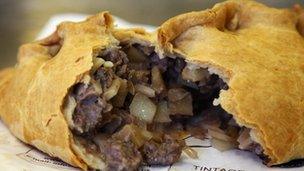Minimum wage and VAT changes take effect
- Published

A rise in the earnings of the lowest paid workers has come into effect but athletes and hairdressers are likely to see their tax bill increase.
Various changes to the UK tax and benefits system come into force on 1 October.
These include an increase in the UK minimum wage from £6.08 to £6.19 an hour. The rate for those aged under 21 remains unchanged.
Meanwhile, VAT will now be levied on sports drinks and hairdressers' chairs.
The government announced in March that the minimum wage would rise by 11p. This 1.8% rise is slightly lower than the typical rise in earnings and the current rate of inflation, which represents the rising cost of living.
The freeze in the minimum wage for those aged under 21 means that:
- The rate for 18 to 20-year-olds remains at £4.98 an hour
- The rate for 16 and 17-year-olds remains at £3.68 an hour
- However, the rate for apprentices rises by 5p to £2.65 an hour
The minimum wage was introduced in 1999 at £3.60 an hour for adults. The latest setting for minimum wage levels mirrors recommendations from the Low Pay Commission.
'Pasty tax'
"While we are pleased that government has rejected the siren calls of some employers to freeze the minimum wage for adult workers and apprentices, these increases are still far below inflation and will leave the lowest paid facing a real terms cut," said the TUC.
"These new rates are a particular blow to younger people who will face the biggest hit on their living standards. There is no evidence that the minimum wage has had an adverse impact on young people's employment so it is hard to see the logic behind their pay freeze."
Meanwhile changes to VAT rules mean that the tax is now being levied on hot takeaway food, the provision of self-storage facilities, approved alterations to listed buildings, sports drinks, and to the rental of hairdressers' chairs.
The alterations were announced in Chancellor George Osborne's Budget in March.
The so-called "pasty tax" caused some consternation and embarrassment for Mr Osborne. Following a U-turn, food such as sausage rolls or pasties sold on shelves - that is cooling down, rather than being kept hot in a special cabinet - will still not be liable for VAT.
However, VAT will be applied to food that is served hot, such as rotisserie chickens sold at supermarkets.
The government also changed its mind on plans to introduce 20% VAT on static caravans, and will introduce a 5% rate of VAT from next April instead.